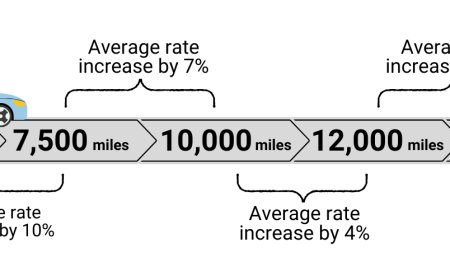Are There Special Tax Implications for Jumbo Mortgages in Virginia?

Understanding the Tax Side of Jumbo Mortgage Virginia Loans
Jumbo mortgages open doors to premium properties across Virginia—think luxury homes in Arlington, sprawling estates in Loudoun County, or waterfront retreats near Virginia Beach. But along with larger loan amounts comes the question: do these mortgages carry unique tax implications?
Navigating jumbo mortgage Virginia tax rules may seem daunting, but once you understand how federal and state tax codes apply to these high-value loans, it becomes clear whether your homeownership dreams come with an extra IRS tag.
Defining a Jumbo Mortgage from a Tax Perspective
A jumbo mortgage is any loan that surpasses the conforming limits set by the Federal Housing Finance Agency (FHFA), currently $766,550 for most counties in Virginia. These loans aren’t backed by Fannie Mae or Freddie Mac and typically come with stricter underwriting requirements. But in terms of taxation, the “jumbo” label doesn’t automatically change how your mortgage is treated. Instead, the tax implications hinge on loan size, interest paid, and how you use the property.
Mortgage Interest Deduction: Where Jumbo Mortgages Stand
One of the most well-known homeowner tax breaks is the mortgage interest deduction. Here’s how it works under current federal law:
-
You can deduct interest on up to $750,000 of qualified mortgage debt (for loans originated after December 15, 2017).
-
If your loan exceeds that limit—like with many jumbo mortgage Virginia loans—you can still claim interest, but only up to the cap.
-
Couples filing jointly get the same $750,000 cap; single filers get half.
For example, if you take out a $1 million jumbo loan in Virginia, you’ll only be able to deduct interest on the first $750,000 of debt. The remaining interest isn’t tax-deductible under federal guidelines unless your loan was grandfathered in before the cutoff.
Grandfathered Jumbo Loans Still Enjoy Full Deductions
If your jumbo mortgage was issued before December 15, 2017, you're in luck. You may still be eligible to deduct interest on up to $1 million in mortgage debt. This exception offers meaningful savings for long-time Virginia homeowners with large mortgages.
To claim this break, your loan must meet certain conditions, and you’ll need documentation proving the loan date and original principal. A tax advisor or mortgage lender can help confirm eligibility.
Property Type and Use Affect Deductibility
Your ability to deduct mortgage interest also depends on how you use the property:
-
Primary and secondary homes: Interest may be deductible within the loan cap.
-
Investment properties: Interest typically isn’t deducted as mortgage interest, but may be claimed as a business expense.
-
Mixed-use properties: You may need to allocate the interest between personal and rental portions.
So if your jumbo mortgage Virginia loan is tied to a luxury rental near Charlottesville, it’s best to structure your deductions under rental property tax rules—very different from the rules for primary residences.
Points Paid on Jumbo Mortgages: Are They Deductible?
Mortgage “points” are upfront fees paid to lower your interest rate. If you pay points on a jumbo loan, the IRS allows you to deduct those fees—but there are limits:
-
For primary residences, points may be deducted in full in the year paid.
-
For refinances or investment properties, they’re usually amortized over the life of the loan.
In Virginia’s high-end markets, where jumbo mortgages often involve rate negotiations and large loan sizes, this deduction can be valuable—but must be carefully documented.
Virginia State Taxes: No Special Treatment for Jumbo Mortgages
Virginia’s tax system does not treat jumbo mortgages differently than conforming loans. Mortgage interest deductions apply only at the federal level; Virginia uses adjusted gross income (AGI) from your federal return to calculate state taxes. This means:
-
Your mortgage interest deduction indirectly affects your Virginia tax bill, but only through federal AGI.
-
There are no additional Virginia-specific deductions for jumbo loans.
-
Real estate taxes, however, may offer separate deductions depending on local rules.
So while your jumbo mortgage might influence your tax liability in general, the state doesn’t add complexity beyond what’s already defined federally.
Property Taxes on Jumbo-Backed Homes in Virginia
While jumbo loans don’t change property tax calculations directly, the value of the home certainly does. Expensive homes financed by jumbo mortgages are assessed at higher values, meaning higher annual property taxes.
Depending on where you live in Virginia:
-
Northern Virginia has some of the highest property tax rates in the state
-
Coastal or rural regions may offer more affordable tax bills, despite large property sizes
-
Local jurisdictions determine millage rates, exemptions, and reassessment schedules
As a jumbo mortgage borrower, expect your tax bill to reflect your property’s premium status.
Capital Gains and Jumbo Mortgages: What Happens at Sale
Selling a home financed through a jumbo mortgage can trigger capital gains tax implications. Here’s how federal law handles it:
-
You can exclude up to $250,000 in gains if single, or $500,000 if married filing jointly—assuming you lived in the home for two out of the last five years.
-
Any gains beyond that are taxable and must be reported to the IRS.
Jumbo homes, especially those that appreciate significantly, are more likely to cross this threshold. Virginia’s rising property values mean careful planning is essential for sellers aiming to minimize tax exposure.
How to Maximize Tax Benefits with a Jumbo Loan
Whether you're applying for a jumbo mortgage or already have one, here are some smart strategies:
-
Itemize deductions instead of taking the standard deduction—necessary to claim mortgage interest
-
Track all closing costs, including points and fees that may be deductible
-
Keep records of interest payments, especially if your loan exceeds the cap
-
Consult with a tax professional familiar with high-value real estate and Virginia tax laws
-
Reassess yearly as tax rules can change, especially following major legislation or IRS updates
If managed well, your jumbo mortgage Virginia financing can work in your favor when tax season rolls around.
Closing Thoughts: Awareness Is Your Biggest Asset
A jumbo mortgage doesn’t come with a separate tax code, but its size and scope can shape how deductions apply. In Virginia, where homes in prime areas often exceed federal loan limits, understanding these implications is more than just smart—it’s essential.
The more you know about mortgage interest caps, point deductions, property taxes, and capital gains exclusions, the better you’ll navigate your homeownership journey. Whether you’re buying your dream home or planning to sell, tax preparedness ensures your jumbo mortgage experience stays as rewarding as your new front porch view.




































